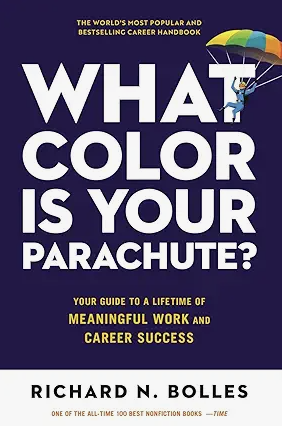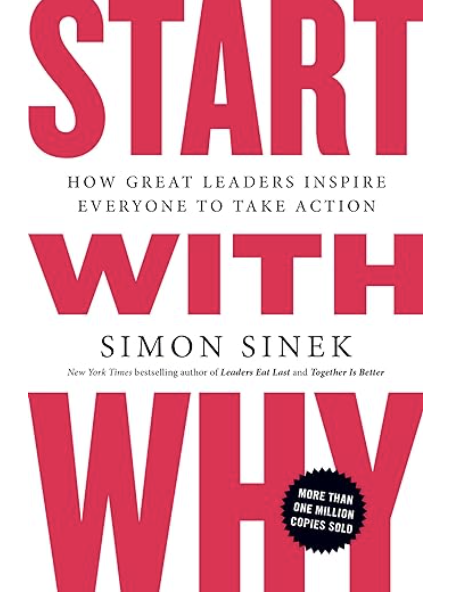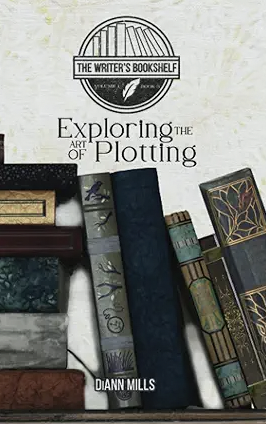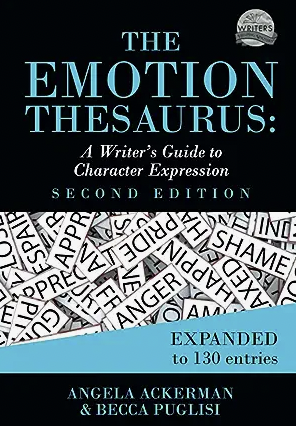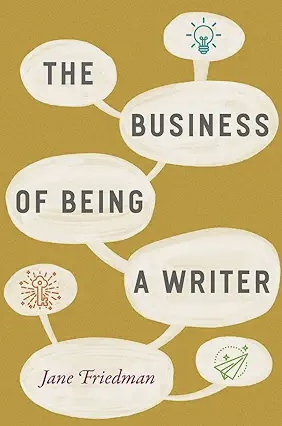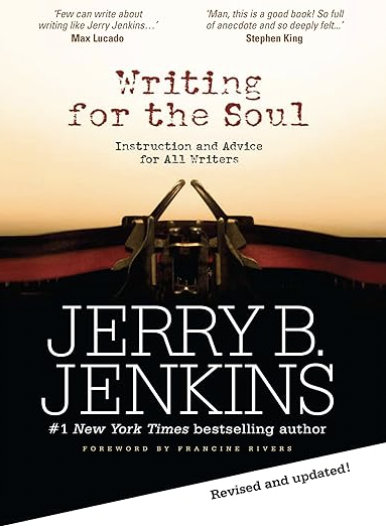42 Books On Creativity: Read Now To Empower Your Future
With 43% of young adults interested in working in the creative space, access to a list of some of the top books on creativity is a must. But whether you fit into the young adult category or are a more seasoned creative, reading books on the creative process takes you places you never dreamed of.
In this article, I cover the best books on the creative process—emphasis on the creative process. There is so much more to creativity than simply finding a good idea. If you want to learn how to become an author, it will take more than reading a book or two on how to write.
To truly take charge of your creative passion, you must equip yourself for the entirety of the creative process:
Study your craft with intention
Set yourself up for longevity
Living as a creative comes with bills, relationships, and highs and lows, just like every field. Let’s dive in.
Books on creativity: what’s covered
Does reading books help with creativity?
Yes, reading books ignites readers’ imaginations and teaches valuable lessons. In particular, reading books on creativity provides tools for the creative process.
I used many of the following books as a guide when I first embarked on my dreams. They inspired, and continue to inspire, my journey. The hope is that you can use even just one of them to help you learn how to follow your dreams as well. Below are 42 recommended books on creativity.
42 Books on creativity
Austin Kleon’s short little book on creativity taught me the value of using other creative work as inspiration for my own. Kleon reveals how to respect the work of others and create original work, while still finding encouragement from other creatives.
2. Big Magic
Famous books on creativity are well known for a reason. In this one, a classic book on creativity, Elizabeth Gilbert spends the pages teaching “creative living beyond fear.”
3. On Writing: A Memoir of the Craft
Stephen King’s road to success started slowl. In fact, his first novel, Carrie, received so many rejections he gave up for a brief moment before continuing on. His book On Writing is that much more helpful due to this fact. It is widely hailed as one of the best books on creative writing.
William Zinsser offers fundamental writing principles through his classic guide to writing nonfiction.
5. The War of Art
Known as one of the great books on creativity, Steven Pressfield highlights what he terms a creative’s greatest enemy: resistance. He then reveals ways to overcome this potential setback.
6. Atomic Habits
By far, James Clear’s Atomic Habits is one of the best books on creativity and innovation I have read. His straightforward writing and easy-to-follow action steps still stick with me today. He is also on the subscription learning platform, MasterClass, if you prefer to watch him teach this book.
7. Story Trumps Structure
When I first heard Steven James teach on creative writing at a conference, his workshop struck me as profound. I quickly purchased his book and recommend it in my top books for creative thinking.
8. The Art of War for Writers
To follow suit, when I met James Scott Bell I also had to quickly pick up his book. His is an easy read, packed with helpful tips, and important to add to your books on creativity.
9. The 7 Habits of Highly Effective People
Stephen Covey made a tremendous impact on the world as a businessman and as an author. The key to succeeding in your author dreams is to be effective. To be effective, you must create habits that work. Covey’s book, though large, is an easy, and highly beneficial, read. My copy is a mess of notes and underlinings.
10. Show Your Work!
Another book by Austin Kleon, this one demonstrates how to share you creativity and get discovered.
11. Rich Dad Poor Dad
Best-selling books on creativity rarely include financial/personal-development books.
However, while the idea of the starving artist may be romantic, most creatives dream of financial stability.
Robert Kiyosaki’s, Rich Dad Poor Dad, stands as the number one personal finance book of all time. Kiyosaki equips readers, no matter their career path, to think like Rich Dad.
12. The One Thing
Choosing to focus on just one thing, rather than many, enables you to pour your resources into one well. Gary Keller’s “one thing” is teaching, which he exemplifies through his breakthrough book, The One Thing. If you have so many dreams you don’t know where to start, start with this book.
13. Bird by Bird
If you haven’t yet, add Anne Lamott’s title to your books to read for creativity insights. Her instruction will help ground your creative life. Creativity is often quite subjective, and I found this book helpful.
14. Made to Stick
While I read this book for a speech class during my undergraduate studies, I easily rank this as one of the best books for artists on creativity.
Written for speakers, this book can also benefit:
Fiction writers
Nonfiction writers
Screenwriters
If you want your communication, written or verbal, to stick with your audience, read this book.
15. Mindset
Often associated with her research on the grit and growth mindset, Dr. Carol Dweck’s work is crucial for creatives. Sometimes I don’t feel in a creative space, but Dweck’s emphasis on a growth mindset references the truth that success does not always come down to innate talent.
16. Leading With Cultural Intelligence
David Livermore shares four models related to cultural intelligence:
Drive
Knowledge
Strategy
Action
Do you dream of your book’s global success? Maybe you already work with a team scattered across multiple countries? Cultural intelligence is a vital skill. People matter, and as a result, communicating with people well matters too.
17. What Color Is Your Parachute?
Richard Nelson Bolles shares a guide to a lifetime of meaningful work and career success. Unless you dream of just writing as a hobby, Bolles’ nonfiction work on career and success should make its way to your bookshelf.
18. Higher Ambition
This multi-authored book is described as “required reading for every leader who refuses to compromise between people and performance.”
For lasting, healthy success, creative writers should never compromise in treating their team well. Success takes a village.
19. Never Split the Difference
Former lead FBI negotiator for the US, Chris Voss teaches this vital skill.
Negotiation may be the last thing on your mind as a creative, but learning this skill can help you:
Land a better book contract
Communicate more effectively
And even write better characters
If you hope to traditionally publish, your agent should handle contract negotiations. However it can only help you to understand the process.
20. The Body Keeps the Score
Bessel van der Kolk’s New York Times bestseller is more of an academic read than most books on this list. However, particularly for fiction writers dealing with heavy topics, van der Kolk provides great research that will add to the realism of your characters.
21. Book Proposals That Sell
I’ve used Terry Whalin’s book as a guide since the very beginning of my writing career. You could read all the best books on developing creativity, but if your proposal doesn’t catch an agent or editor’s attention, it won’t matter. This book easily lands in my top 10 books on creativity/how to succeed as a writer.
22. Emotional Intelligence
Your IQ is not the only factor determining your, or your characters, degree of intelligence.
Daniel Goleman equips you to:
Engage with others more effectively
Understand the rational and emotional mind
Write more nuanced characters
Whether you flip to the most helpful chapter or start at the beginning and read it cover to cover, this book is worth having around.
23. Thinking Fast and Slow
As a creative writer, wouldn’t it be helpful to understand how you think? Have you ever wondered why you feel intuitive at times and slow and logical at others? Daniel Kahneman explains two types of thinking in his Nobel Prize winning book.
24. On Creativity
If you don’t have much time, Harvard Business Review’s collection, On Creativity, may be for you. I’d argue it’s one of the best books on creativity and art due to its diverse array of articles.
25. Start With Why
Simon Sinek shares an in-depth version of his foundational TED Talk in his book, Start With Why. If you want to become an author, identifying why is paramount to the longevity of your success.
26. Daring Greatly
Brené Brown takes the cake on inspirational books on creativity. Creativity is one of the most vulnerable career choices out there. In this book, Brown teaches you how to dare to pursue the life you want.
27. The Intellectual Devotional
A brief revisit to historical events makes creative writing come alive. This book will help historical fiction writers, biographers, or writers who desire to pull inspiration from history. Each page offers a succinct synopsis of an important aspect of American history.
28. Models for Writers
Well onto its 14th edition, Rosa and Eschholz share the specific elements that make writing effective.
29. Your Novel Proposal
Blythe Camenson and Marshall J. Cook’s complete guide to writing query letters, synopses, and proposals has stood the test of time. Read it alongside Terry Whalin’s, mentioned above.
30. Exploring the Art of Plotting
Some of the best books on unlocking creativity start with the fundamentals, such as plotting. Bestselling author DiAnn Mills walks you through the nuance of plot so you can make yours stand out.
31. On Writing and Writers
C.S. Lewis is best known for his series, The Chronicles of Narnia. The fact that he was willing to share his opinions and advice is a gift in itself. The fact that this wisdom was compiled into one book? Priceless.
Conveying the appropriate emotion in your characters can make or break the success of your story.
Resist the urge to use this thesaurus to find the most esoteric word to communicate your meaning.
Instead, use this book to find the best word succinctly move your story forward.
33. On Writing
Another book titled On Writing, this one is a compilation of Ernest Hemingway’s thoughts on the subject. Hemingway specifically focuses on craft, habits, and discipline.
34. The Business of Being a Writer
While books on imagination and creativity can help get you started on your career, to continue in your success, you must understand the business side as well. Jane Friedman uses her expertise to empower writers in the business of writing.
35. Exploring the Art of Character
A wonderful partner to DiAnn Mills’ Exploring the Art of Plotting, this one hones in on characterization. I discovered both books are packed with helpful tips.
36. The Elements of Style
First published in 1918, The Elements of Style has aided writers for over a century.
37. The Emotional Craft of Fiction
Books on increasing creativity, or even books on improving creativity, often focus on plot and characters. Both of these aspects are key to good storytelling.
However, emotion ties the two together.
Donald Maass is an author and agent who began his own agency, appropriately named the Donald Maass Literary Agency.
38. Save the Cat!
Screenwriters have loved Blake Snyder’s bestseller for years, but it’s also known to be extremely beneficial to authors.
39. Creative Confidence
Co-authors and brothers, Tom and David Kelley, write on how to unleash your creative potential.
40. The Ruthless Elimination of Hurry
Speaker, author, and pastor, John Mark Comer, shares the importance of eliminating some of the chaos from life. While this book can help anyone pursuing a more peaceful life, it’s a great Christian book on how to slow down and in so doing, make room for new creative ideas.
41. On Stories
In just nine essays, C.S. Lewis shares his philosophy on creative writing. I remember starting this one and thinking, “Wow, this is one of the best books on creativity.”
42. Writing for the Soul
Subtitled, Instruction and Advice for All Writers, this was one of the first books on creativity I ever read. Authored by 21-time, New York Times bestselling author, Jerry B. Jenkins, this one is a must-read for an aspiring author.
How do I train my creativity?
While reading books helps teach you the fundamentals of your craft, the best way to train is to practice. It’s easy, at least for me, to focus so much on gaining the knowledge that I forget to fully implement it into my work.
For every book you read, you may want to try the following:
Choose one top takeaway to implement into your next edit
Write down your top three takeaways into a growing list
Review your list after you finish five books for a refresher
Learning, without execution, is a waste of your most valuable resource.
What increases your imagination and creativity?
Continuing to self-educate increases curiosity, which in turn leads to heightened creativity. Learning comes in a variety of ways. Whether you choose to read the books mentioned above, invest in a writing course, or receive feedback via a manuscript critique, you can grow your imagination today.
Use the above books on creativity as an aid to increase your creativity. Refuse to bog yourself down with reading and forget to move forward into the actual writing.
Start your creative journey today
Discovering new books on creativity is always exciting. However, if you’re determined to succeed, remember that it will take more than reading a list of books on the craft to develop your craft.
You can download the free resource below and start your author journey today. Happy writing!


















